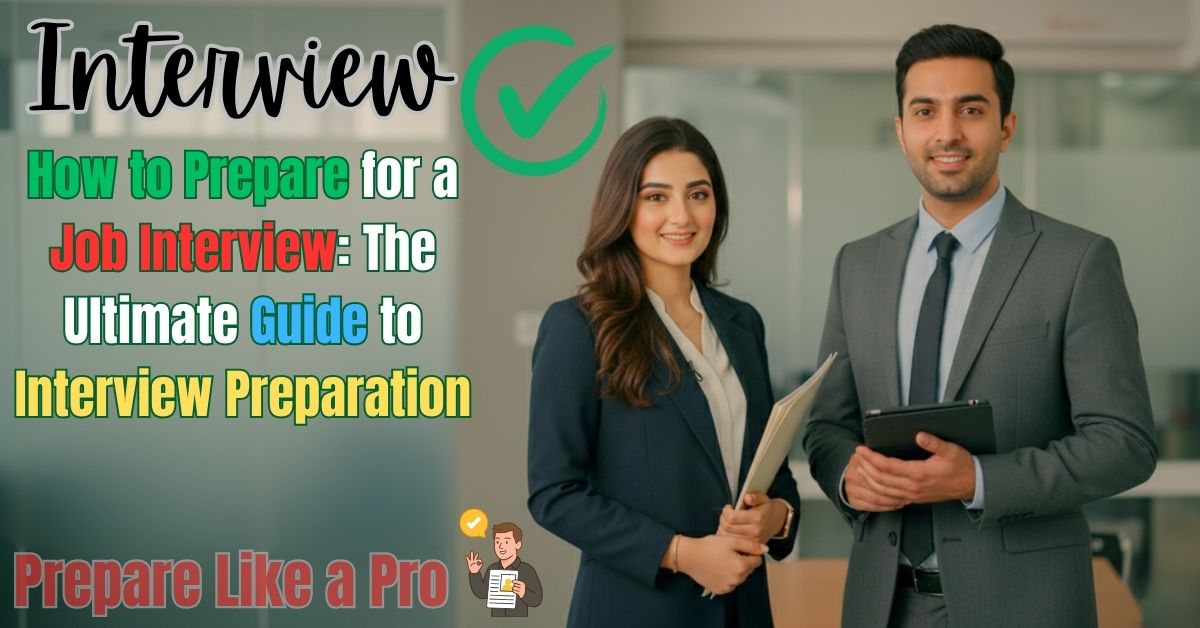Most people think that job interviews are really overwhelming, but the truth is about to transform the way you approach interviews. Success doesn’t mean you are perfect at everything; success means being prepared for the desired things. Whether you are preparing for the first interview or trying to refine the techniques you used before, after years in the workforce, this comprehensive guide will provide you with the strategic insights about practical tools, which will not only be helpful for surviving but also give you ways to absolutely excel at it.
The modern job interviews demand different processes by understanding the dramatic changes and adopting a modern preparation way, so you can easily land your dream job. Let’s dive into the details of the science of the interview and preparation with the exploration of all aspects, from initial to post-research, that the interview follows up.
Types of Interview and What They Mean for You
Before we explore the strategies, we should first know the types of interviews. All interviews are not created equal. Each type serves a specific purpose in the process of hiring the candidate. Recognizing all the types of interviews and then preparing for the designated type of interview will tailor the preparation approach effectively.
a. Face-to-Face Interviews: The Gold Standard
A face-to-face interview is the most common type of interview, typically in most private or government jobs. These types of interviews last between 45 minutes and two hours. This time allows the interviewer to fully know the potential of the employee, enabling both parties to assess cultural fit, professional chemistry, and communication skills. The more time is consumed during the interview, meaning the interviewer is asking you more questions due to your capabilities. Face-to-face interview spans may differ; it depends on the interviewer and the candidate.
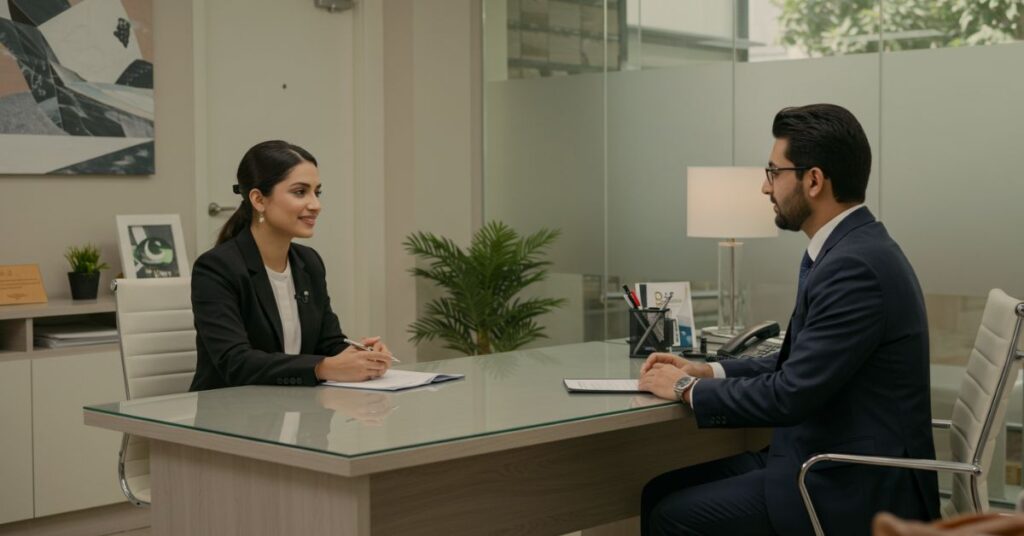
The only thing that makes face-to-face more valuable is the opportunity for nonverbal communication. The body language, level of energy, and the ability of the candidate determine the factors in hiring. The format allows the natural conversational flow, where the personality and thinking process of the candidate can be evaluated in real time. The interviewer notices how you handle different situations by answering the complex questions.
b. Telephone Interviews: The First Filter
The second type of interview is a telephone interview that serves as an efficient screening tool. The telephone interviews typically last about 30 minutes. For the employees, this is the early process to narrow down applicants before investing the time in the evaluation methods. Interviewers on telephones observe the interviewee through the visual cues, tone of speaking, pace, and articulation. These gestures then become the primary tools for making positive impressions. Typically, the telephone interviews also require the same preparation as in-person meetings, despite their seemingly casual nature.
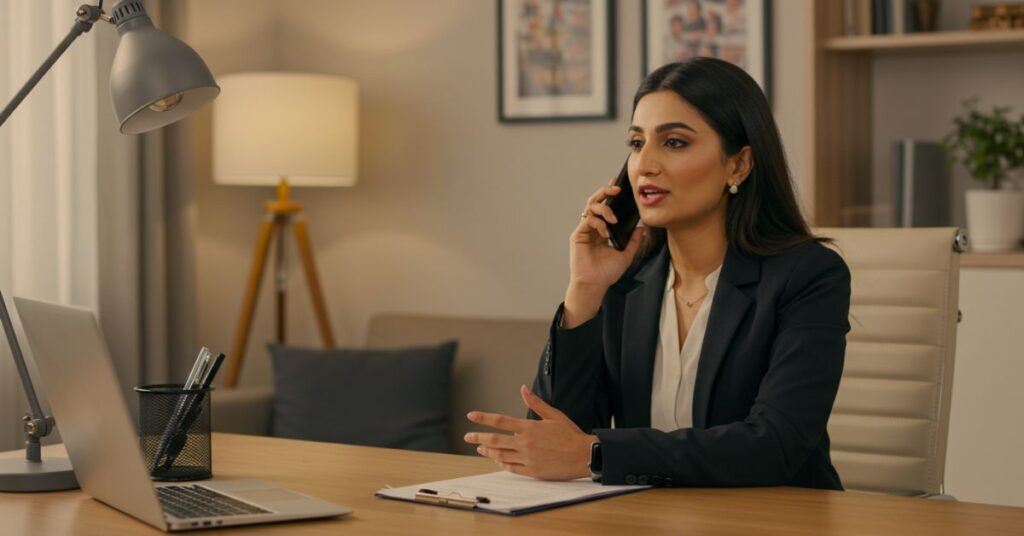
c. Video Interviews: The New Normal
In this technological time, video interviews have become more popular and widely used to hire employees. The type of interviews saves much time for both the candidate and the interviewer. The video interviews are mostly used when a company is hiring candidates for remote jobs. The typical duration of the video interviews is around 30 minutes, and the candidate can be determined by responding to the predetermined questions.
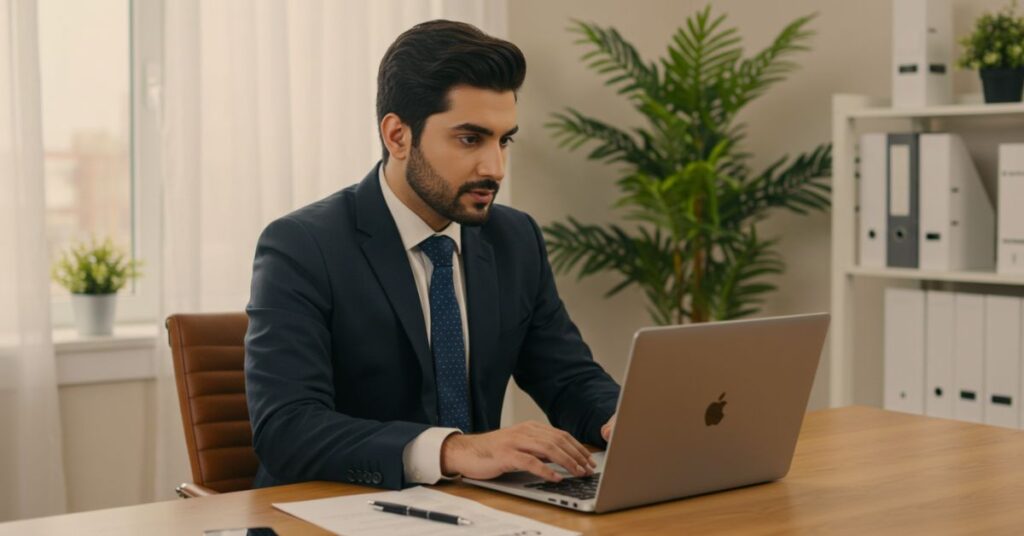
The video interviews present a greater challenge than both phone and face-to-face formats. For being ready for a video interview, the candidate should manage ethical considerations when making eye contact with the camera rather than the screen. In the video interviews, the lighting, the audio quality, and a stable network become the critical factors and can influence the impression before you even speak.
d. Assessment Centers: The Comprehensive Evaluation
The other type of interview is the assessment center representation, the most intensive format that usually lasts a full day. These types of evaluations allow employers to observe the candidate simultaneously across the scenarios, including the term exercises, role-playing situations, and presentations. In the assessment center, the ability reveals how you perform under pressure and collaborate with others by adapting to different challenges over an extended period. In this type of observation, the assessment provides a detailed and comprehensive picture of the capabilities and the use of skills of the candidate within the organization.

The Foundation of Success: Strategic Research
The interview starts when you step into the room before the talk starts or while the video call connects. The research phase is the foundation where you build the knowledge that will make you confident throughout the interview. This step is like the construction of a detailed map and the territory entering step.
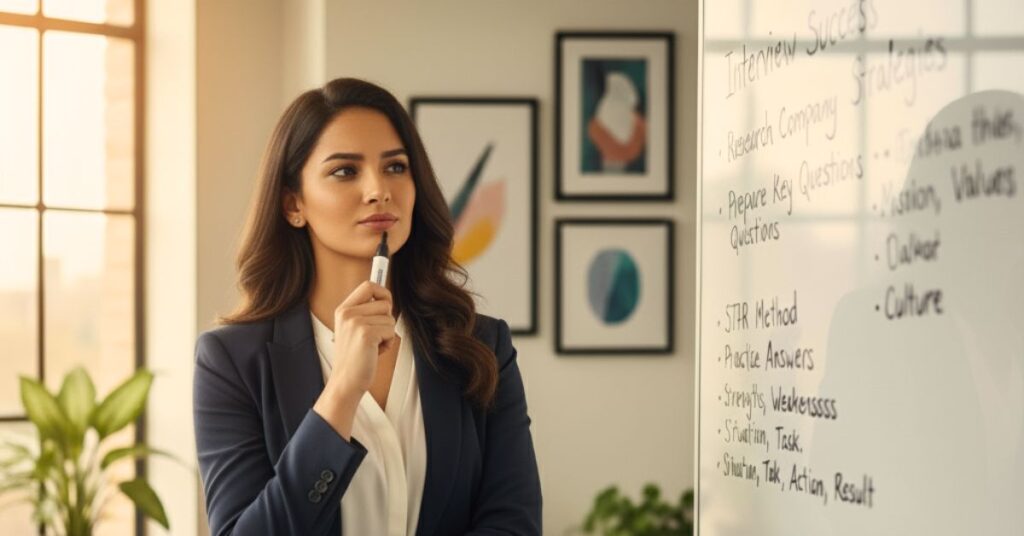
Deep-Diving into the Employer
When the employee is getting ready for the interview, the organization or company should be thoroughly researched by the candidate. An eye should be kept on the recent press releases and other aspects to develop a nuanced understanding of the business context, trajectory, and challenges. If the candidate has explored the factors deeply about the sector they operate in, and how market forces are affecting that industry. To understand the market position and unique value proposition, research on the main competitor should be done.
Before appearing as an interviewee, an investigation into the major projects, such as strategic initiatives, partnerships, and acquisitions, should be conducted. This deep research will show the interest of the candidate and will provide an excellent reaction. Otherwise, these insights will be genuine and will provide a base for the thoughtful questions during the interview. By understanding the cultural values and preparing previous examples, it resonates with the organizational philosophy.

Consider the broader context of their industry. Are they in a growth phase, facing disruption, or leading innovation in their space? This macro-level understanding enables you to speak intelligently about how your skills and experience can contribute to their specific challenges and opportunities.
Mastering the Role Requirements
They should return to the description with open eyes to study deeply, treating the whole journey as a road map for preparation. Potential interview topics are presented by each requirement, responsibility, and desired qualification. A mental inventory should be created that shows how the background aligns and how each element demonstrates your qualification.
Once the application form is completed, the next step should be that you review it with fresh memory to determine how you positioned yourself for the role. To maintain credibility, the consistency between the application and interview responses is crucial. Additionally, be prepared in order to expand the points made in the application with concrete outcomes and detailed, described examples.

Meeting the basic requirement should not be the goal; consider a unique combination of experiences, perspective, and skills that could add value and not be obvious from the job description. This might cause the separation of elevated thinking from merely qualified ones to the exceptional candidates.
Researching Your Interview Panel
The whole process of selection depends upon the candidate and the interviewer. If the interviewee is able to judge what he is gonna be asked, then the approach can be tailored. Knowing the interviewer’s name and other information provides valuable context. The company’s official About Us pages may expose the background of the interviewer and other prospects. A known interviewer can help the candidate observe the perspectives and can anticipate the types of questions that might be asked. Typically, the hiring manager might focus on the day-to-day responsibilities and may dive deeper into the technical skills as well as the problem-solving approaches.

The research on the panel of the interview provides much ease for the candidate and gives a connection during the interview. In an interview, the professional interests and shared educational backgrounds can be helpful in establishing relationships with the interviewers.
Preparing Your Question Arsenal
Developing thoughtful questions is one of the most overlooked aspects. Firstly, it demonstrates a genuine interest in engagement, and secondly, it provides the crucial information for an informed decision about the opportunity.
Questions That Showcase Strategic Thinking
The importance should be given to the questions that reveal the ability of the candidate to think in a strategic way to the organization. Don’t focus on the basic question, whose answer can easily be answered even by their website. Ask about the biggest challenges over the next year that are focusing on the insights required for insider knowledge, or what changes they anticipate in their industry. By inquiring about these kinds of questions, demonstrating thinking beyond just landing a job, you are considering how meaningfully to achieve their objective. And information related to the working style and career goals is also provided to check whether this opportunity aligns with your career goals or not.
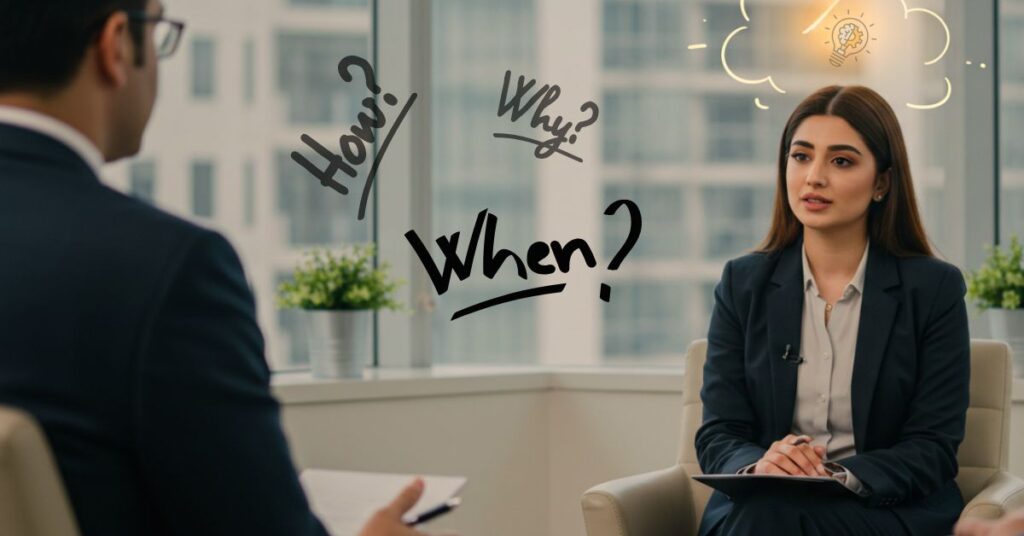
Mock Interviews: Your Secret Weapon
There is a famous saying that practice makes a man perfect; no one is perfect, but continued practice does. Mock interviews are really good at providing the closest approximation to real conditions of the interview while allowing for identification and highlighting the weaknesses in a friendly environment.
Structured Practice Sessions
In many universities, sessions for the mock interviews are even valuable for experienced professionals. This practice session can even be conducted with the family members to evaluate the weaknesses or to acquire the grip over fluency. Treat these rehearsals seriously and struggle to make the demeanor and the answer to the questions as if it were the actual interview, not a mock.
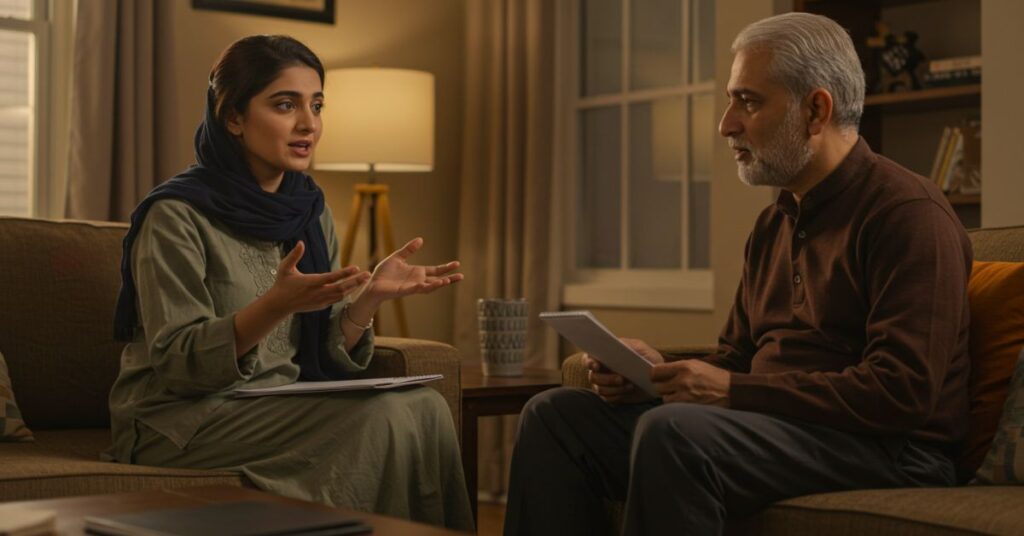
In practice sessions, if possible, record a video of yourself. Recording a video of yourself initially is really uncomfortable, but it reveals our unconscious habits like speech patterns, body language, and much more. If you do this, then after a practice session review it deeply, you will discover that you fidget more than you realize, like speaking too much, struggling to maintain eye contact, and even when you are nervous.
Scenario-Based Preparation
Despite the questions and answers practice, you should also prepare for the different scenarios of the interview that you might encounter. Whenever you are asked for the inevitable pitch like “tell me more about yourself,” a concise and compelling story should be prepared for these kinds of moments. For the behavioral questions, use the STAR method (Situation, Task, Action, Result) in clear and accessible language to explain the complex projects and experiences.
What to Bring: Your Professional Toolkit
In the interview, the physical and digital preparation materials serve as both practical resources and confidence boosters during the process. While demonstrating attention, having everything organized reduces stress. If you have the necessary things, you can use whenever you need them. Some of the essential items are given below:
Essential Physical Items
The candidate should have a portfolio with a collection of requested documents, like a CV, an invitation to the interview, educational certificates, and work samples. Even though it is the digital era, having physical copies shows interest and preparedness with the provision of reference materials during the conversation. If you intend to make notes during the interview, then bringing a high-quality notebook and pen will serve a practical purpose while showing interest and curiosity.
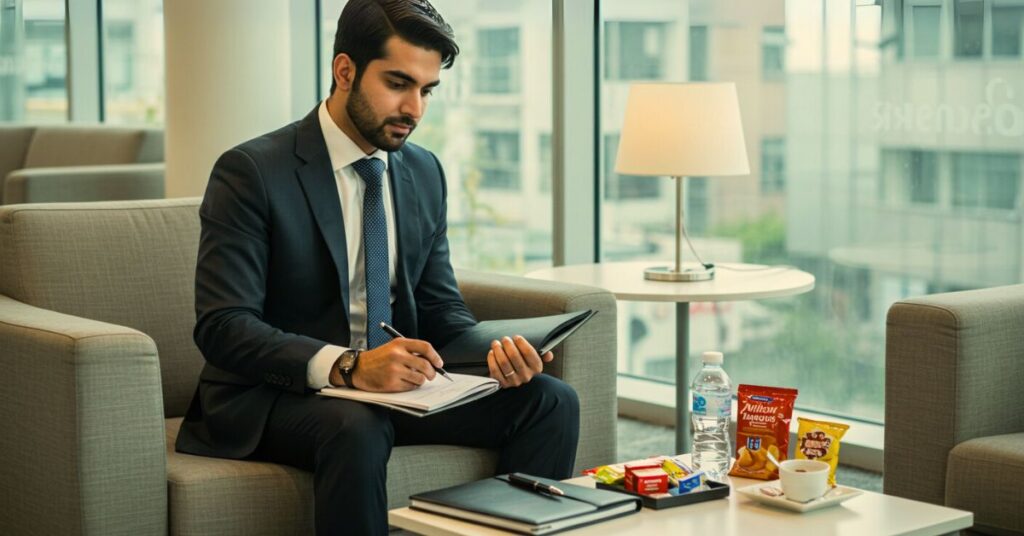
Along with this, there are practical items that don’t seem very important but can make a difference in the comfort and confidence level. When heading for the interview, please make sure to have enough money for transportation and a light meal to keep you tension-free. To boost confidence, it’s better to buy mint, some gum, and a water bottle that helps you to maintain vocal clarity during the extended interviews.
Digital Interview Preparations
The online interviews also demand some preparations, like the physical ones. When preparing yourself for the online interview, make sure to have all the required software well in advance, a proper working headset, and test your laptop to ensure it is working fine. Additionally, prepare your environment containing the appropriate lighting, fewer distractions in the background, and priority to privacy during the timeframe. In the online interviews, the camera angle matters the most. Position your camera at eye level in order to maintain eye contact, and the setup should be tested from the perspective of the interviewer. For backup for extended periods, keep a bottle of water to have a sip to avoid disruption during the interview.

Dressing for Success: The Psychology of Professional Appearance
Before the words you speak, the appearance communicates to the panel as you enter the room. Proper clothing is a crucial component for the preparation of the interview. The goal is not to try to make yourself actually you or not, but to present the most professional and polished version of yourself while respecting the cultural norms of the organization.
Understanding Dress Code Context
When hiring a candidate, different companies and industries expect different professional attire. For the large financial institutions, the maintenance of conservative dress codes is traditional business attire, while for the creative agencies, the casual and more expressive style is demanded. To make the appearance more effective and compatible with the culture, follow the social media presence of the company or through their website, and examine the dress code before entering the building.
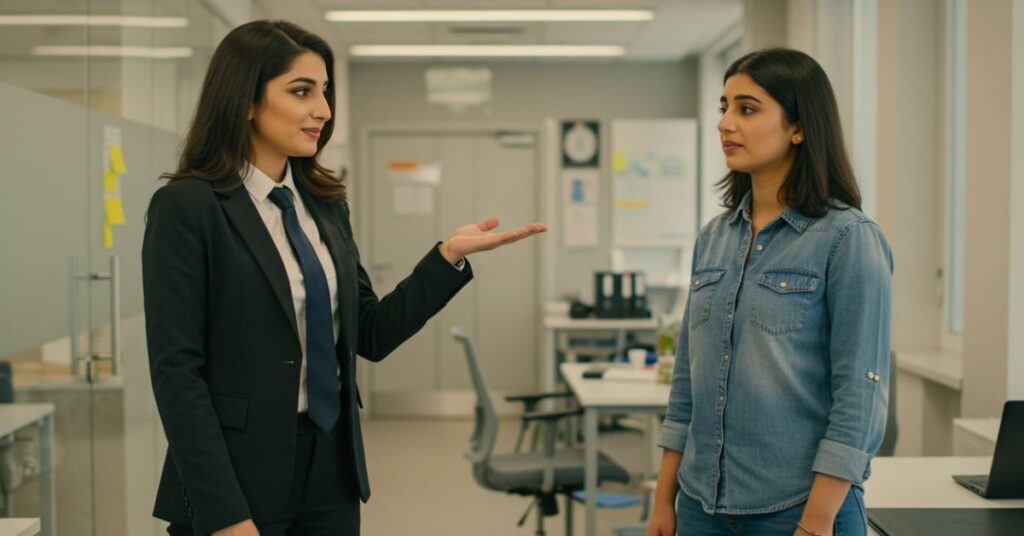
If you are confused after reviewing the social media presence, it’s better to contact the recruiter or the HR who manages the interviews for clarification of dress code doubts. By doing this, you may be appreciated for the attention and will get helpful guidance about the expectations of the company.
Making Outstanding First Impressions
In every interview, whether it is an online interview or a physical interview, the first impression sets the tone for the entire interaction. Before the approach of questioning and answering, the first impression leaves an influence on how interviewers perceive the subsequent response.
The Power of Punctuality
In the process of hiring, punctuality is given preference; arriving on time demonstrates respect for the interviewers. When you arrive on time, it’s not too late, it reduces your stress and settles you into the environment before the formal begins. You should plan to arrive about 10 to 15 minutes before the allocated time to prevent any unexpected delays.

Reach early and in the waiting zone, review all of your notes, observe the environment of the company, and interact with the reception staff. Accept that interaction with staff can influence the hiring decision in some cases. So, maintain your demeanor from the moment you enter the building until you leave.
Projecting Positive Energy
Punctuality affects the impression of the interviewer. Like this, the approach is with genuine enthusiasm while maintaining professional composure. If you are punctual and enter the interviewing room with a full spirit, this balance demonstrates excitement and emotional maturity. If you shake hands, your enthusiasm is highlighted by the grip without being overpowered. Hence, maintain proper eye contact during introduction and in the initial conversation. The establishment of non-verbal communication can make a positive connection and demonstrate confidence in professional settings.
Mastering Body Language and Communication
During the interview, body language is as important as the dress. When you enter the room, the interviewer can depict all of your character through gestures. The body language, tone of voice, confidence, and overall presence contribute to the overall performance. Maintaining eye contact and sitting up straight without appearing rigid results in a confident posture. Avoiding slouching or leaning heavily during the interview, keeping the hands visible, and using natural gestures increases the chances of selection.
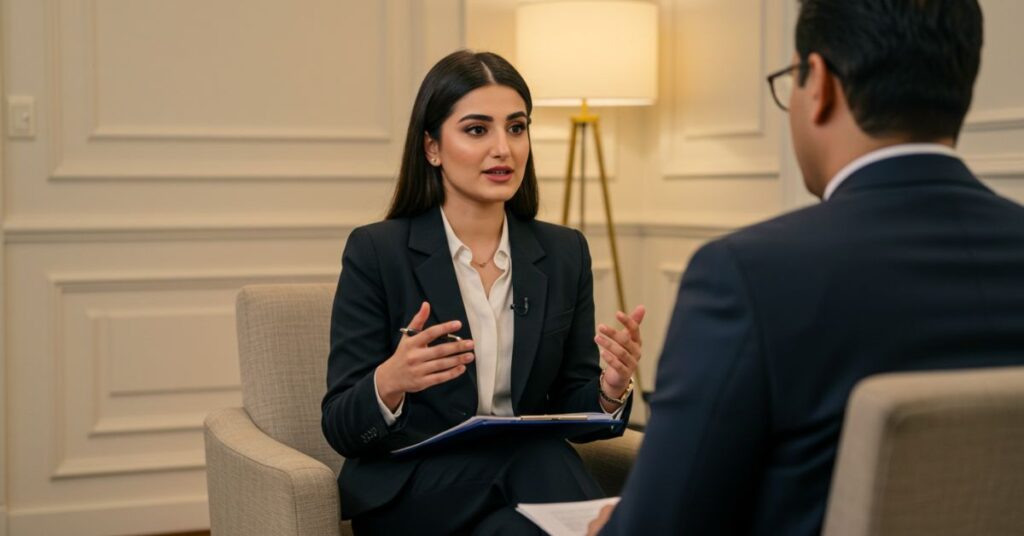
FAQs (Frequently Asked Questions)
-
What is the best way to prepare for a job interview?
First, research the company, then practice key questions, seek guidance from the experts, and review the role requirements.
-
How do I handle different types of interviews?
You should prepare all the essentials and leverage the different strategies for different types of interviews.
-
How can I research my interview panel effectively?
For researching the interview panel, it’s better to visit the website or check the company profile on LinkedIn, including the background interests.
-
What are strategic questions to ask during an interview?
Widely asked strategic questions during interviews by the candidates are company challenges, growth plans, and industry trends.
-
How do mock interviews help with preparation?
Mock interview helps to figure out the weaknesses and build confidence to stimulate the real interviews.
-
What essential items should I bring to an interview?
The essential items for the interview are different depend on the situation, but primarily bring the CV, notebook, pen, portfolio, water, and light snacks if needed.
-
How do I prepare for a digital or video interview?
For a video interview, check all the accessories to make sure working normally and try to minimize distractions while maintaining eye level to the camera in good lighting.
-
Why is body language important in interviews?
The proper body language, the confident posture, stable eye contact, and positive impression lead to grabbing the attention.
Also Read: Why Choose Private Jobs After Graduation? 7 Key Advantages For Career Growth and Salaries
Conclusion
When cracking any interview, you should give attention to multiple elements, including some thoughtful questions, strategic research, technical logistics, and significant communication skills. Initially, it seems overwhelming, but when you break the whole process into its small components and start preparing in advance, you can make even complex interview formats easy for you. Don’t forget that the interviews have the mutual process of the evaluation. In an interview, the employer tries to assess the qualifications to check whether the qualifications are suitable for the organization or not. Appearing in the interviews, approaching a balanced perspective results in reducing anxiety and empowering the candidate to make decisions for their career direction.
You should start implementing these strategies and focus on the weaknesses where you feel least confident. Doing non-stop effort and preparing yourself strategically can transform the interviews from stressful conditions to exciting opportunities that really excel.
Discover more from JobStallPk.Com
Subscribe to get the latest posts sent to your email.
